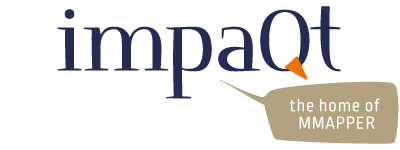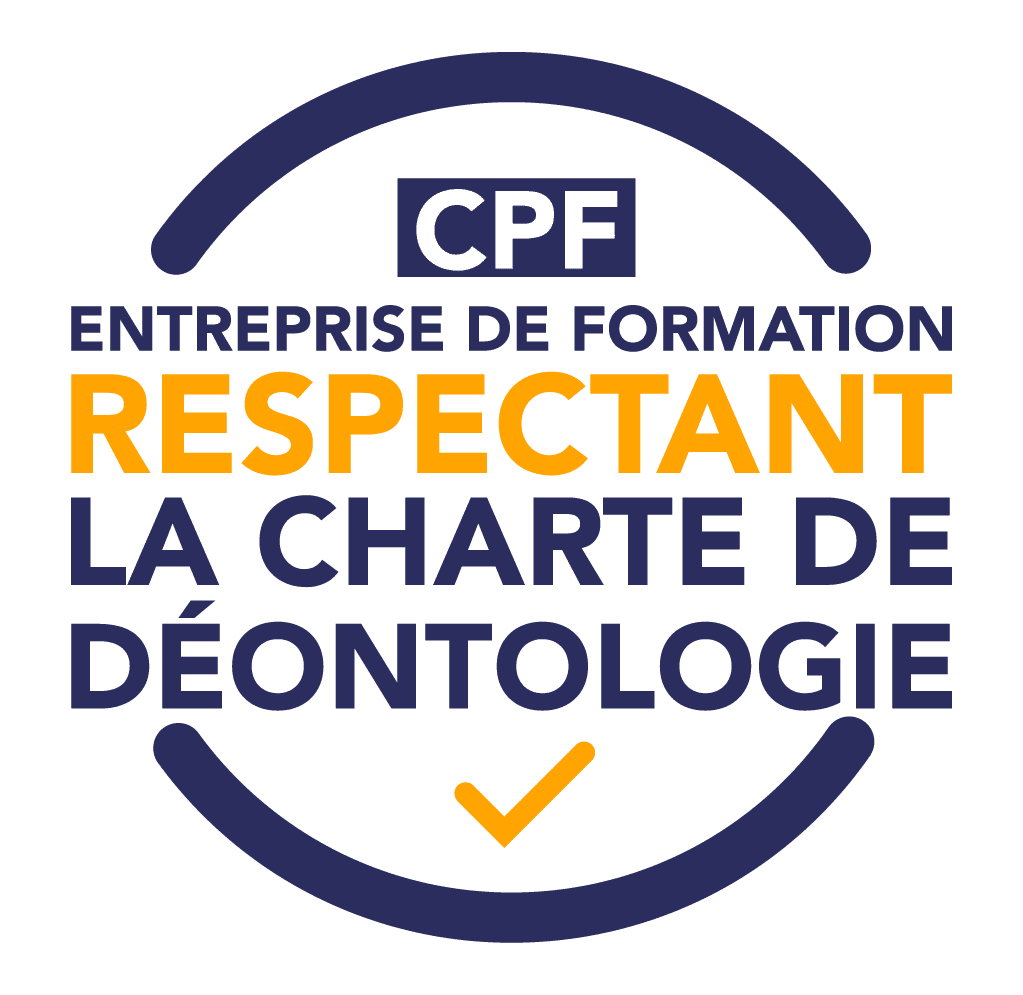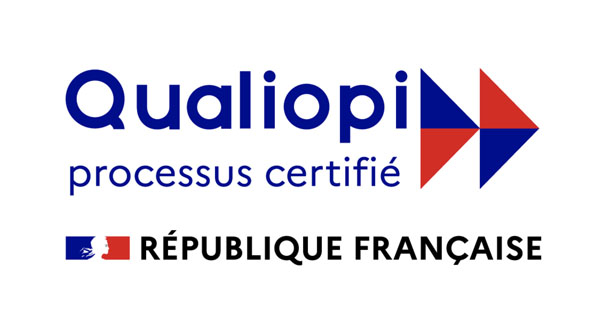Newsletter
The Co’s Words
I remember having predicted with some bitterness the end of our long-standing activity in Languages. That was back in 2019. Today, in 2025, we’ve had the pleasure of welcoming and training two new young Language facilitators – and I’ve had to BEEN ABLE TOO facilitate again in this field on a few occasions given the growing interest in our flagship Language programs!
Besides the pleasure of realising that my expertise in this field is still very much intact 😅 – because once learning is truly embodied, it lasts a lifetime – I experienced this not as a step backwards, but as a real opportunity, an opportunity to revisit the fundamentals, to see how our practices in Management can enrich our work in Languages (and vice versa), and finally to realise that MMAPPER can be applied to a wide variety of contexts and situations.
In this newsletter, we are delighted to share with you a few new projects for 2026 that have emerged from this thought process, to continue building a brighter future together.
Happy reading,
Géraldine Berruto
Co-gérante
Food for Thought
When feedback gives meaning
Throughout the last few years, while working with learners, I’ve noticed that giving feedback doesn’t come naturally to everyone – and when it does, it isn’t always expressed in a constructive way. Giving feedback requires care – especially in using the right tone and having a clear intention to help someone evolve rather than simply correct them. When the message is consistent and easy to hear, it almost feels magical: it’s acknowledged and respected. Communication flows, trust is built, and learning begins to take shape.
So…why is it so difficult?
Because it touches on our humanity.
Giving feedback is daring to create a moment of discomfort; receiving feedback is accepting a bit of vulnerability. Too often, the message isn’t really heard:
too straight forward, too poorly phrased, or too vague to be useful. The article « The essential Role of Feedback in Effective Communication » by FasterCapital reminds us that effective communication relies on feedback loops – in other words, a conversation where the information flows and adjusts itself rather than a one-way transmission. Feedback isn‘t an arrow that you throw; it’s a living loop between two people. For the loop to work, there’s a key ingredient: meaning.
The Harvard Business Review article « Why Feedback Can Make Work More Meaningful » highlights that feedback is not only about improving performance – it makes work more meaningful. In other words, well-formulated feedback doesn’t just say « here’s what you should change. » – it also implies « here’s why what you do brings value ».
That recognition turns feedback into motivation and learning.
By the way, where does the word « feedback » come from?
It originally appeared in the fields of engineering and cybernetics in the 1940s. It was used to describe a feedback mechanism: the output signal of a system that returns to its input to correct or stabilize it. That’s the principle of a ship’s rudder which adjusts its course through feedback to stay on track. Over time, the concept migrated into communication, education, and management.
Today, feedback keeps that technical essence – observe, correct, improve – but it also has a human dimension: listen, understand, grow. It’s this chemistry of rigor and benevolence that makes feedback such a powerful – and delicate – tool to handle.
Feedback is more than just a technique.
It’s an act of connection – between two people, between action and meaning, between progress and recognition.
When carefully formulated, it becomes a driver of learning, communication, and transformation.
Sources :
MMAPPER Insight

From Com&Co to MMAPPER & Co!
When I started my career, I had the chance to take part in an inspiring co-development program in England in the early 90’s called « Profit Through People ».
Ever since, I’ve been dreaming of building a similar program – one that embraces a lifelong learning culture and stands out thanks to the MMAPPER model.
As I approach my 65th birthday, I believe I’ve finally got it!
Its promise?
To be able to:
– position yourself and obtain an accurate image of yourself whenever you need it,
– build a concrete development project, set meaningful goals, and define an action plan,
in other words, be the actor of your development!
Intriguing, isn’t it?
So who is it for? For everyone! Well, almost. The only prerequisite is the desire to learn and grow.
Indeed, the MMAPPER model can be applied to a wide variety of issues and situations, giving rise to diverse development projects aligned with each person’s reality and aspirations.
MMAPPER & Co – The Foundations will consist of five days dedicated to building foundations – discovering and learning to use MMAPPER, creating your own project, and understanding how to build others.
Anyone that followed this program will then be able to join the MMAPPER learning community and take part in our « MMAPPER Days ».
How is it different from Com&Co ?
– A shorter, more intense, and more impactful program
– A 100% MMAPPER program with positioning process in the Mirror pillar using a variety of tools (such as PCM, Karpman’s Drama Triangle, Emotional Intelligence, and NonViolent Communication)
– Belonging to a learning community that offers long-term support and motivation.
So are you intrigued?
Contact me to find out more.
A need or a request?
At this time of year, when we’re being called upon to identify language development needs for the year ahead, I’m reminded how often the word “need” gets confused with “request”.
The future learners wish to improve their English. They look through the catalogue and request an immersion course, or one-on-one sessions, or e-learning, or even conversation classes… They tick a box among the available options. Ok, so the request comes from them, they are motivated… that’s great! That already makes 2 key ingredients for successful learning.
But something’s missing.
Is it learning for the sake of learning, or learning to achieve a goal? From the very beginning, we seek to understand the why/what for before thinking about the solution. Our training programs are designed to help turn a project into reality – not only to satisfy a desire. Pleasure is indeed one of the pillars of our MMAPPER model and we see it as a key to success in any development path; however, not as the only starting point.
I want to improve my English. OK ✔ Message well received – but not fully understood yet.
To have a better understanding, we analyse the need by involving the potential learner, his/her manager, and the HR department. Then MMAPPER comes in and here are a few examples of questions we ask:
Project – What do you need to be able to do in your current or future role that you can’t do today? In which environment, with whom, how often, and what are the stakes?
Mirror – What difficulties are you facing today? Which language skills do you need to develop?
Method – How do you usually approach language learning? Which learning methods best fit your level, your learning style, and the time you’ve got to be operational?
Actor – What are you currently doing to develop your language skills? What else could you do?
Pleasure – Do you enjoy communicating in English? Do you feel excited about following a program?
Effort – What do you think will require the most effort in your English learning process? Are you ready to invest personal time outside of training sessions?
Risk – What kind of situations are challenging for you in English today? Do you dare to step out of your comfort zone?
Once the evaluation is done, the need analysed and validated by all stakeholders, we’ll be ready to suggest a tailored learning solution that ensures long-lasting results. And then… The World is Your Oyster!
News
Save the dates !
🎉 Our Language and Management calendars for the first semester of 2026 are ready!
And this year, we’re going BIG. 👀
📍 Paris, Lyon, Grenoble, Poitiers, Normandy… and a new location : NANTES 🐘
💡A brand-new & 💯% MMAPPER program
Ready to boost your skills?
📅 Check out the dates, locations and sessions
P.S: The calendars could be adjusted and additional sessions added to meet our clients’ needs.
🚀 The next MMAPP’heure is coming to Grenoble
📅 11th of December | 📍 Domaine de Charmeil ⛳
This time, we’re going hands-on with:
“MMAPPER applications” 🖌️
Join us for an evening of (re)discovering the MMAPPER model and exploring how it can be adapted to each person’s own reality!
👉 On the agenda: learning, experimenting and inspiration in a warm and friendly atmosphere.
📌 Places are limited – Sign up quickly
Friends and Partners
ImpaQt, partner of the ‘AcT’ en Seine-Eure’ project
It was without hesitation and with great enthusiasm that we responded positively to the call of our friend and long-standing partner Virginie Rigaudeau, Sustainable Transformation Project Leader at Schneider Electric, to contribute to the ‘AcT’ en Seine-Eure’ project.
What is ACT?
It is initiative led by international organisations designed to provide companies with methods and tools to develop low-carbon transition strategies aligned with the Paris Agreement.
ImpaQt’s role ?
Facilitating of course 😉—alongside Virginie Rigaudeau, MMAPPER-certified since 2023, and Rodolphe Durand, project leader. We’ll contribute by creating an environment conducive to taking a step back and building connections between the various stakeholders – which will help bring about new business visions and strategies.
Launch scheduled for the first quarter of 2026!
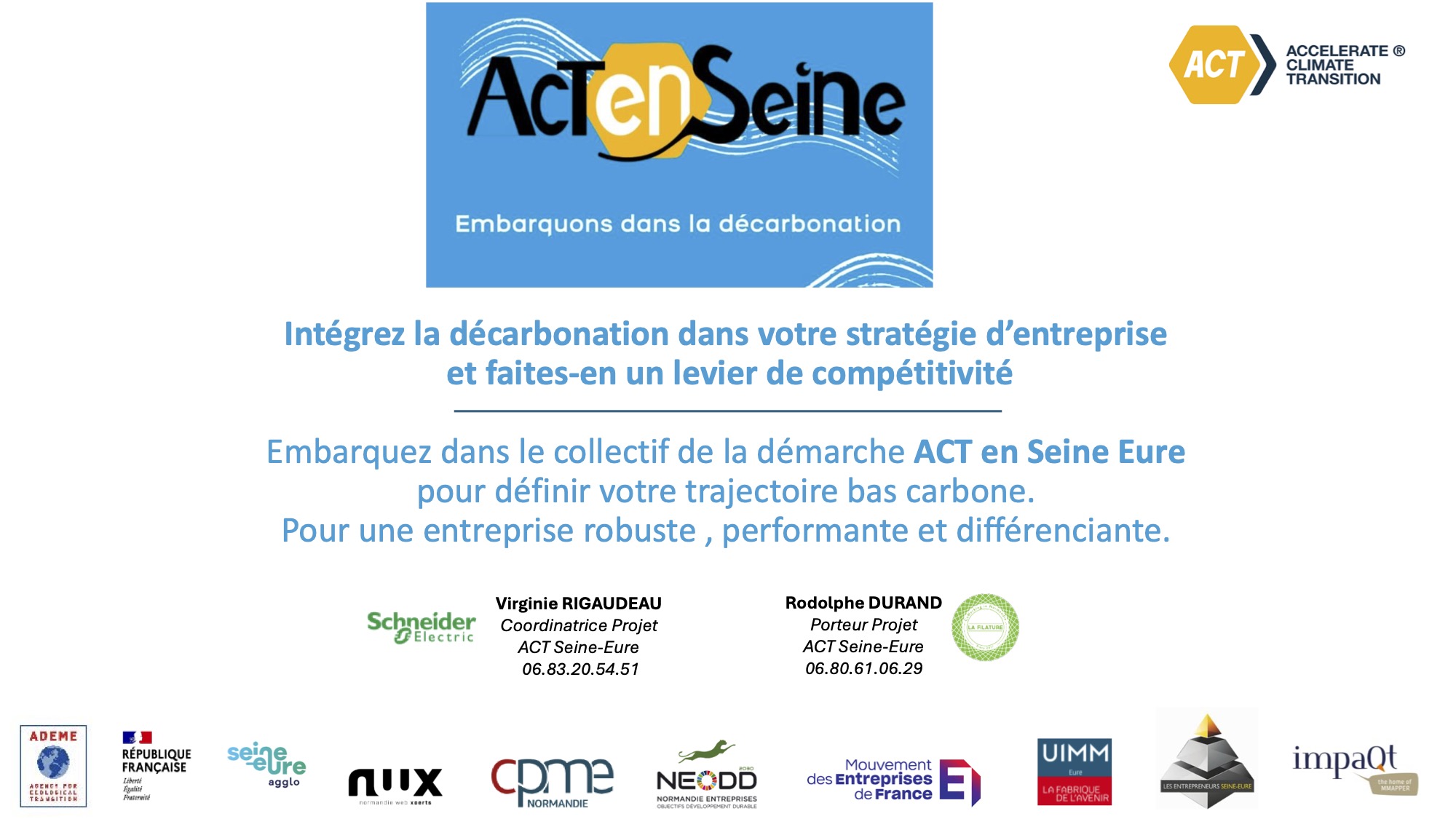
Q Corner
Eurêka !
How can a suggestion be turned into action?
You’ve surely had to fill out satisfaction surveys at the end of training sessions where you are asked for suggestions for improvement.
What do we do with them?
Here’s an example: one of our learners commented on our Lifelong Learning File following her language training.
She found this tool high-quality and well-designed – yet she hadn’t really made it her own. What a shame not to make full use of it!
Her suggestion, that came through her satisfaction survey, was added to our July team meeting’s agenda.
How could we make this file – into which we’ve put so much time and heart to create – an essential tool for our learners?
So we had a brainstorming session during which the whole team contributed to ensure that the support closely matches our practices.
And the result…Aha! Have a little patience! It’s currently at the printer’s and will be available at the beginning of 2026!
Scores on the doors !
100% success rate on the LevelTel test since the start of the year for our certifying Upgrade programs!
Congratulations to all our Upgraders! 👏
Our learners have their say!
Here’s some recent feedback that echoes Jane Le Goff’s article « A Need or a Request ? »:
« An accurate diagnostic allowed me to take this suitable and positive course (Effective Communication) with committed participants and attentive facilitators who provided great recommendations. »
Eric Breton, Project leader – eCommerce/Digital tools chez Schneider Electric
Enjoy the newsletter?
Share it!
